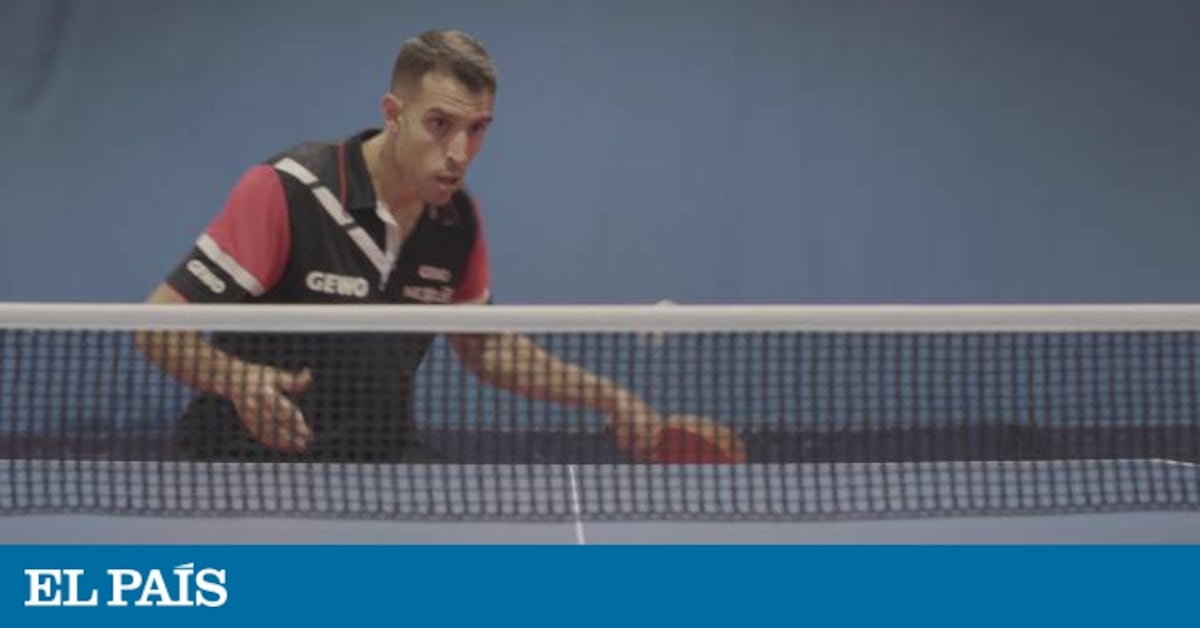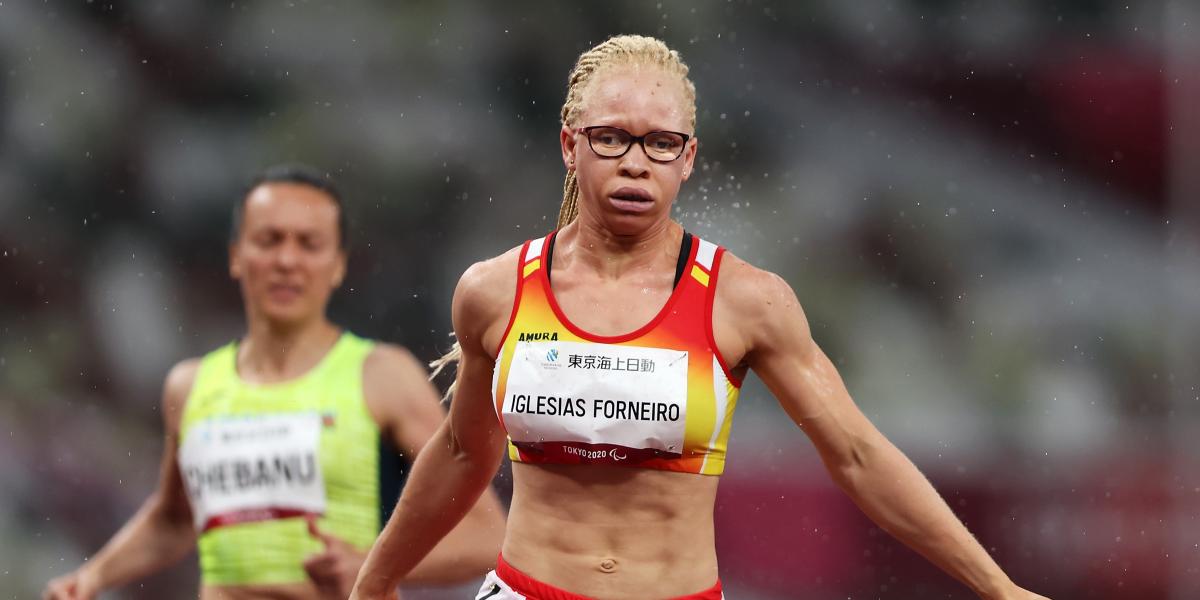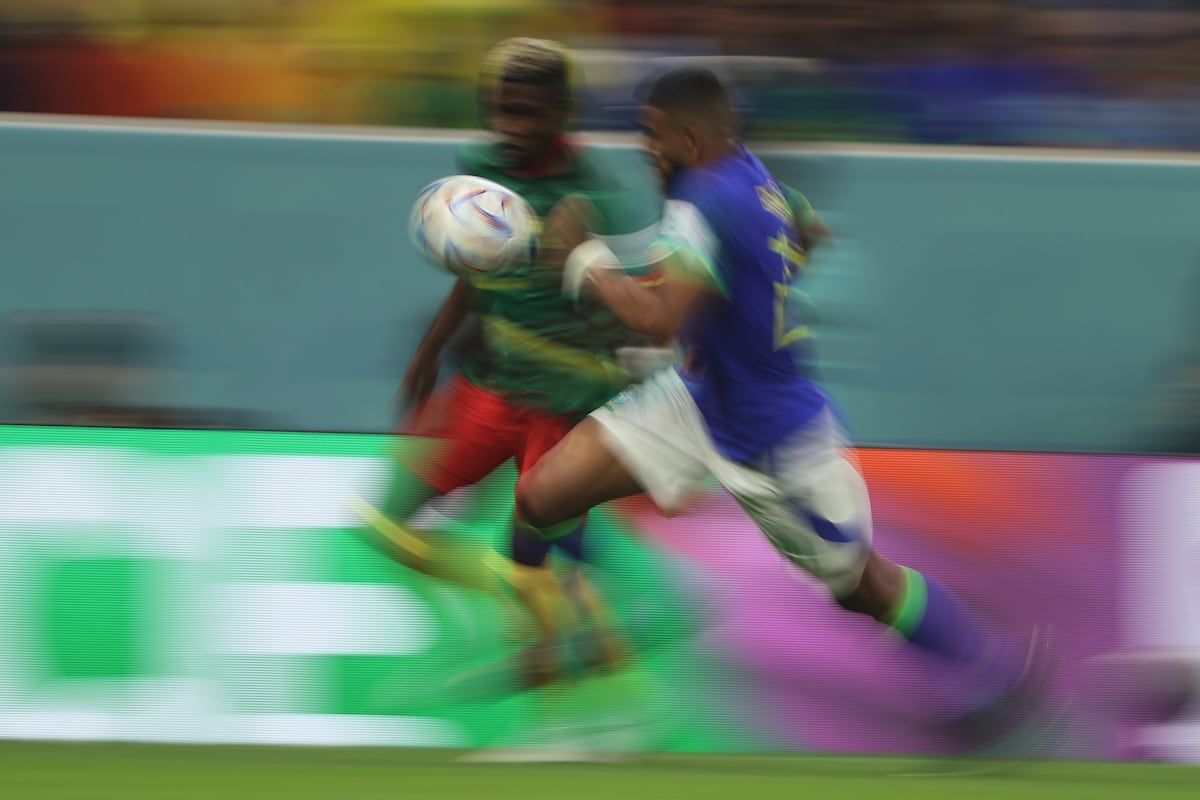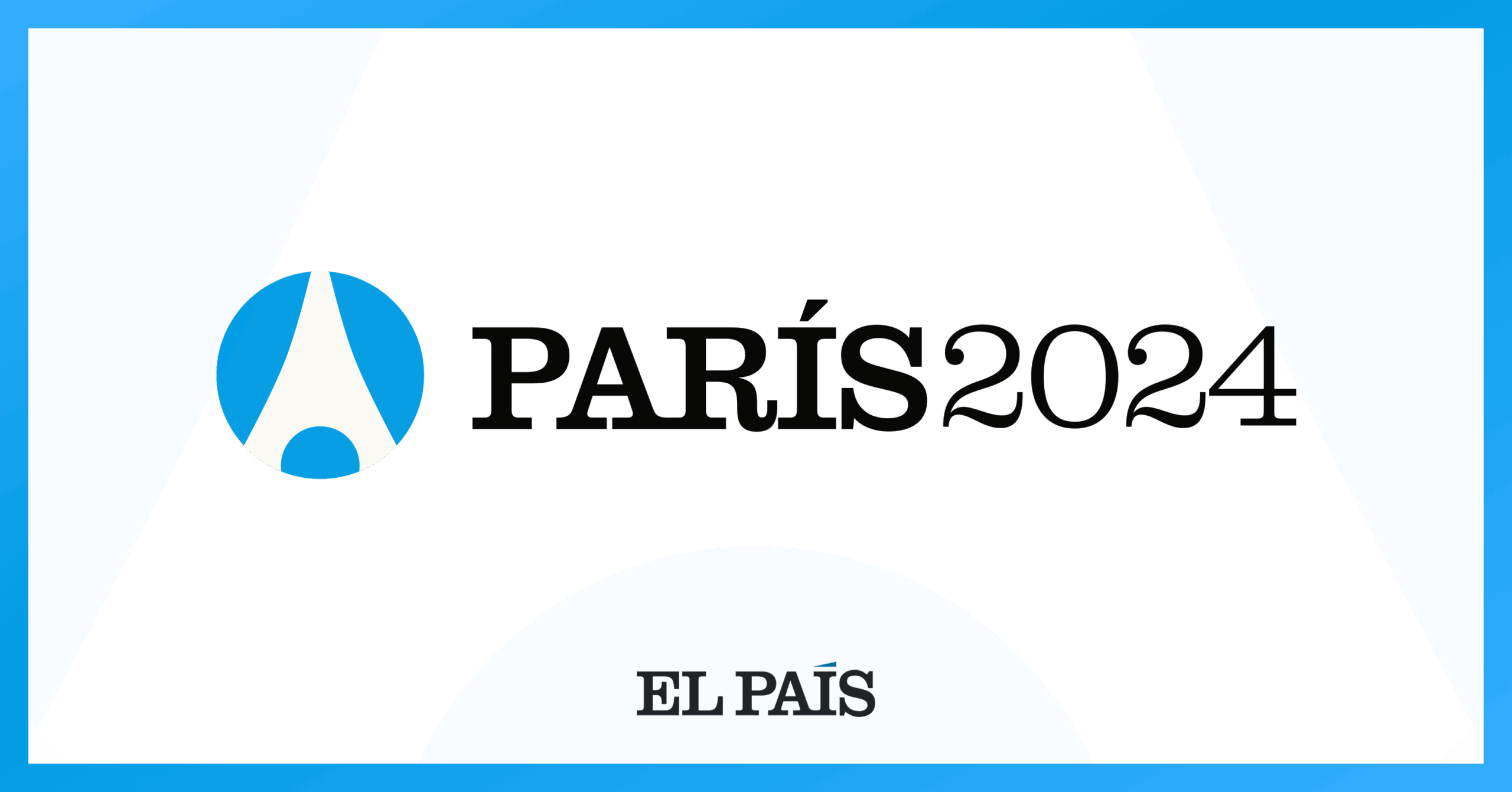ICT-TIC, TIC-CONT, TIC-TOC … The round trip sound hitting the racket and the table is hypnotic. Álvaro Robles has been bewitched by him for two decades, since he discovered him with nine years when he went to see his brother play a table tennis match. “And I started accompanying him from that moment. While he played, I spent the hours hitting the ball against the pediment.” Almost 20 years later, that boy in the Huelva neighborhood of Santa Marta (that of the champions, then we will know why) is the first Spanish who has won a World Cup medal in this sport. In between, a learning career that has taken him through high performance centers in Córdoba, Germany and Madrid. With marathon training days in which the blows must be repeated until the fainting. ICT-TIC, TIC-CONT, TIC-CONT … Up to 12,000 times each day. Now he works in his next objective, the classification for the Olympic Games. It is optimistic. Thanks to the financial support of Laligasports he will be able to travel to compete in international tournaments, especially in Asia, where the most prominent tennis players play.
Robles recalls Huelva's Hispanicity, the club where he began to take his first steps as a tennis player. He stood out from a young age and soon began to chain victories in local and regional championships. He has a winning gene that acquired, he says, in his native neighborhood in Huelva, Santa Marta. “As a child I threw the whole afternoon in the street and any game became a competition: the first one arrives at the store, folding the corner … I think growing in that healthy competition environment helps you a lot when it comes to compete in professional level,” he says. He is not the only World Cup in this neighborhood of successful athletes. Carolina Marín (three times Bádminton world champion and Olympic gold in Rio 2016) ran through its streets practically at the same time as Robles. And a decade before Emilio Martín (Duathlon World Tricampeon) did.
At age 15, Robles decided to move to the center of Sports Tecnification of Table of Priego de Córdoba, a vital step for, with 19 years, to make the leap to Madrid and begin to compete in the highest category nationwide: the superdivision. However, the true turning point in his career was the decision to leave to Germany to compete in the Bundesliga (DTTL). “There table tennis is at another level. It is very common to see more than 1,000 people in the stands encouraging in the matches,” says Robles.
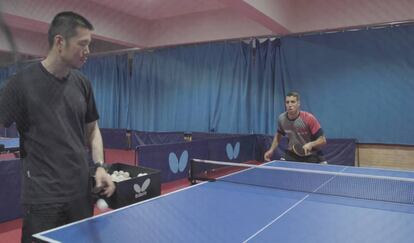
The German Bundesliga is one of the most powerful in the continent and in it some of the best players of the world 'ranking. The work routines and high competition have allowed Robles to code with the World Table Tennis elite. When he arrives in Germany in 2015 the Huelva occupied the 215º position of the world. At the moment it occupies the 56º. He is very clear: “I am leaving to Germany has been the best decision of my career.”
The main responsible for Robles traveling to the German country was his former partner in the Spanish team Alfredo Carneros, 13 times champion of Spain and the first Spanish to qualify for an Olympic Games (Beijing 2008). He is the current coach of the Spanish table tennis team. Carneros also played for five years in Germany and in addition to helping him make the decision, it was his great support in the most difficult moments: “There are many moments of loneliness, of uncertainty, in which things do not come out … and I tried to be the snack of fresh air that helped him continue fighting. He was very clear about what he wanted and everything he has achieved has earned it based on work.”
Currently Robles and the rest of the team work at the Madrid High Performance Center (CAR), a decision that was forged with the support of his coach and with the complicity of the Royal Spanish Table Tennis Federation. There the working days begin soon, about nine past nine, and end at six in the afternoon. A ball between colleagues begins the session, before the challenge that faces every day comes: a cube with 400 balls. To the right and left, forward and behind, the player strives to return them to the coach without rest, accustoming the body to find winning blows of memory. After an hour there will be empty seven cubes, almost 30 after the day. “I wanted to bring here everything I learned in Germany, their way of working, so that the whole team could take advantage of my experience and create something beautiful in Spain,” he explains.
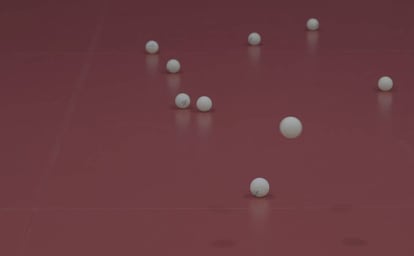
“Here we have everything we need,” says an athlete who completes his preparation with strength and resistance exercises, in addition to sessions with physiotherapists. A perfected routine that is possible in its own facilities within the CAR, a team of professionals at the service of the tennis players and the help of Laligasports that, through the Federation, provides an essential support according to Álvaro: “LaLiga's support allows us to prepare the season with a more professional approach. Being able to travel and compete in the Asian tournaments was something that we could not allow and that is essential to achieve the objectives”.
The results have ended up arriving. Robles arrived with the duties made to the World Cups held last April in Budapest, Hungary. Eliminated in the individual picture, both Álvaro Robles and his partner, the Romanian Ovidiu Iunescu, were able to focus on the doubles box with less pressure. The bar was put in the quarterfinals. It is the match that gives the pass to the medals and oaks had already stayed at the doors on four other occasions. “We study the Swedes perfectly and did the perfect game,” he recalls. A forceful 4-0 already by metals. The next pitfall was the semifinals against the Portuguese. Ionescu and Robles arrived in three sets and began the final losing 4-8. The game ended with an epic comeback and ended up winning 11-8 and ensuring the first Spanish Tennis World Cup medal, nothing less than a money. “We were in a cloud,” Robles recalls excited. “The whole pavilion went with us in the final against the Chinese, but this time it could not be.” Ma Long (world number one) and his partner Wang Chuqin ended up taking the gold.
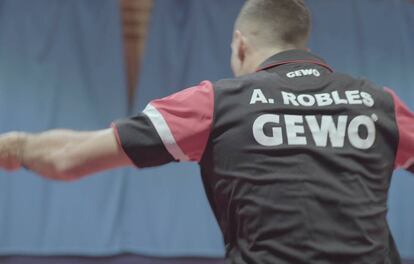
The next objective of Robles is the classification for the Olympic Games of Tokyo 2020. Optes the individual classification and by mixed couples, next to the Spanish Galia Dvorak. It will not be an easy path. You will have to score in at least four International Tournaments of the ITTF and place among the eight best or 16 best in the world in the individual 'ranking' to play the qualifying tournament at the end of the year. Only the four best in the tournament are classified directly. If you don't succeed, you can try again in the Olympic year. Álvaro will be playing until July 7 in South Korea, where he has already managed to qualify for the final box, from there he will fly to Australia and end in Bulgaria at the end of August. To achieve this, it would be the eleventh Spanish tennis player to qualify for an Olympic appointment.
